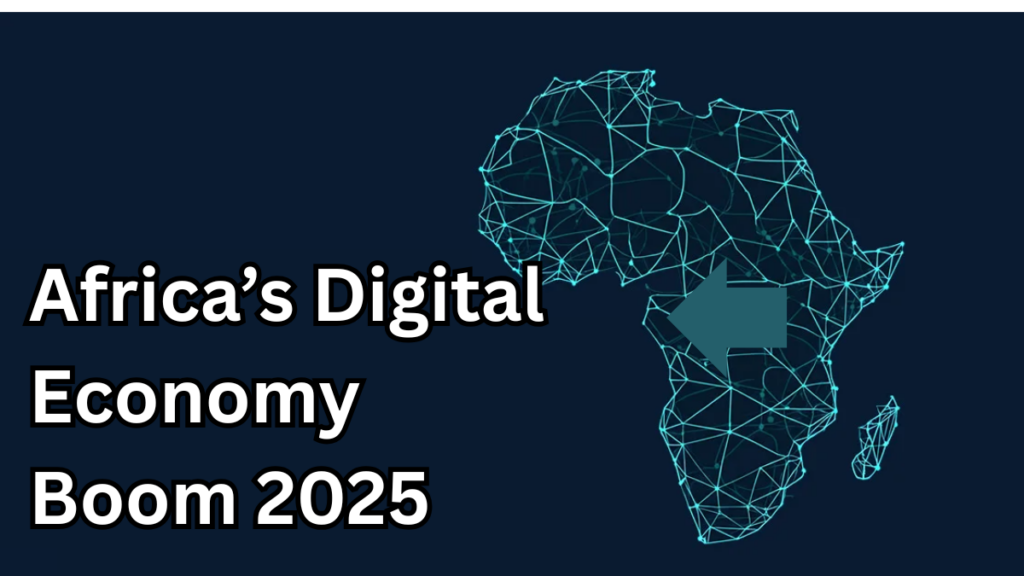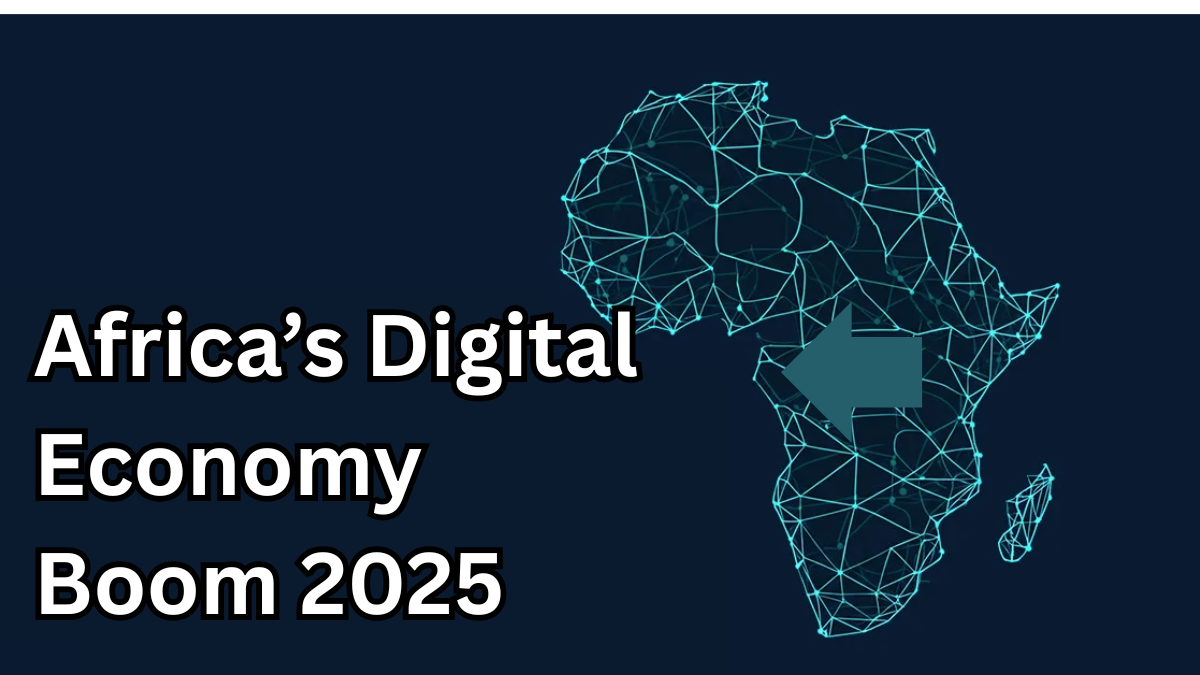The digital revolution in Africa is not just a dream—it’s happening now. With significant strides in internet infrastructure and mobile connectivity, the Africa tech economy is entering a transformative era. Across both cities and rural regions, digital inclusion is becoming a reality for millions.

Why 2025 Is a Pivotal Year for Africa’s Tech Scene
2025 is emerging as a defining year for Africa’s digital growth. With the rise of mobile broadband, innovative startups, and progressive government policies, a strong foundation is being laid for long-term prosperity in the Africa tech economy.
Key Drivers Behind the Digital Boom
-
Affordable smartphones are becoming more accessible
-
5G and fiber-optic rollouts are expanding to rural areas
-
Governments are investing in digital education and infrastructure
-
Fintech startups are enabling mobile banking for the unbanked
-
A young, tech-savvy population is fueling demand for innovation
Expanding Internet Access Across Africa
One of the most impactful changes fueling the digital economy is the expansion of internet access. By 2025, over 65% of Africans are expected to have reliable internet—up from just 43% in 2020.
Internet Access in Africa: 2020 vs 2025
| Region | Internet Access in 2020 | Projected Access in 2025 |
|---|---|---|
| West Africa | 41% | 68% |
| East Africa | 38% | 63% |
| Southern Africa | 51% | 73% |
| Central Africa | 36% | 60% |
| North Africa | 60% | 75% |
How Digital Inclusion Is Changing Lives
The widespread adoption of digital tools is creating opportunities across all sectors. Digital inclusion is now directly contributing to improved education, healthcare, employment, and entrepreneurship.
Real-World Impacts of Digital Growth
-
Education: Access to online learning is improving outcomes in remote areas
-
Healthcare: Telehealth services are connecting patients with doctors
-
Entrepreneurship: E-commerce is empowering small businesses
-
Finance: Mobile wallets are increasing financial participation
-
Employment: Remote job opportunities are growing, especially in tech
Tech Startups Driving Innovation
The Africa tech economy is being reshaped by a wave of homegrown startups solving local problems with global potential.
High-Growth Startup Sectors
-
Fintech: Mobile payments, digital lending, and blockchain services
-
EdTech: E-learning platforms and localized education tools
-
AgriTech: Smart farming solutions and supply chain platforms
-
HealthTech: Telemedicine, diagnostics, and health data platforms
Countries like Kenya, Nigeria, South Africa, and Egypt are producing globally recognized tech solutions.
Bridging the Urban-Rural Divide
One of the most promising outcomes of the digital surge is the inclusion of underserved rural communities. Through satellite internet, local hubs, and targeted training, digital inclusion is becoming more equitable.
Ongoing Initiatives for Inclusion
-
Internet kiosks in rural areas
-
Community-run tech education centers
-
Government and NGO-supported data subsidies
-
Digital literacy programs focused on women and youth
The Future Outlook: What’s Next?
The potential of the Africa tech economy is immense. Projected to exceed $700 billion by 2030, the challenge now lies in scaling this growth while ensuring inclusion, equity, and sustainability.
FAQs
Q1. What is digital inclusion and why is it important in Africa?
A: Digital inclusion refers to making internet and digital tools accessible to everyone, regardless of location or income. In Africa, it plays a crucial role in improving education, boosting the economy, and reducing inequality.
Q2. Which countries are leading the digital transformation in Africa?
A: Nigeria, Kenya, Egypt, South Africa, and Rwanda are leading the way with innovative startups and forward-thinking digital policies.
Q3. What are the biggest challenges facing the Africa tech economy?
A: Key challenges include lack of infrastructure in rural areas, high data costs, limited digital literacy, and gender disparities in tech access.
Q4. How can international investors support Africa’s digital future?
A: By funding African startups, supporting infrastructure expansion, and working with local organizations to promote digital education and connectivity.
Click here to learn more
Sachin is a dedicated writer specializing in education, career, and recruitment topics, delivering clear and actionable insights to empower readers.
